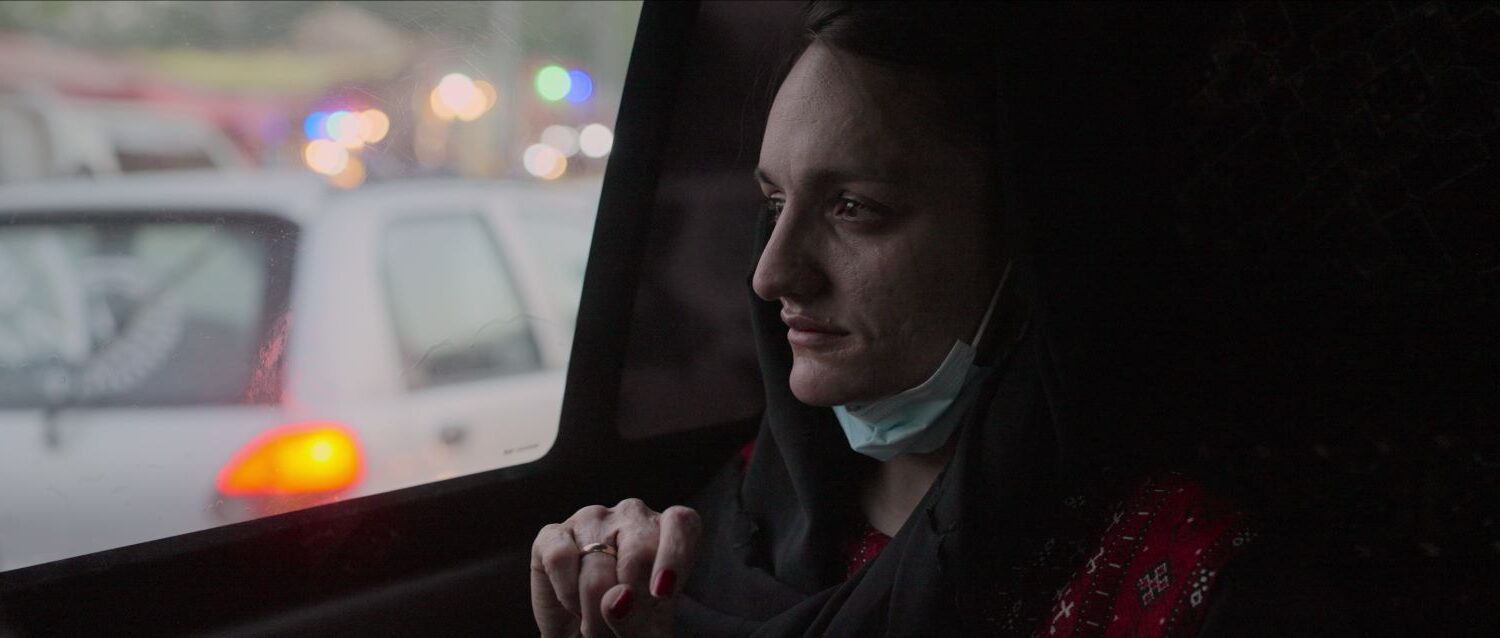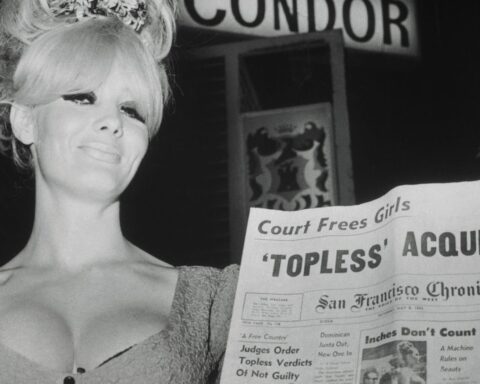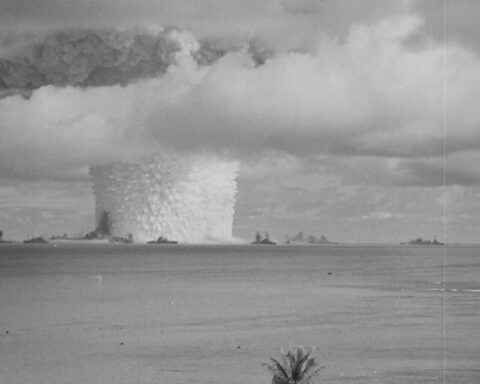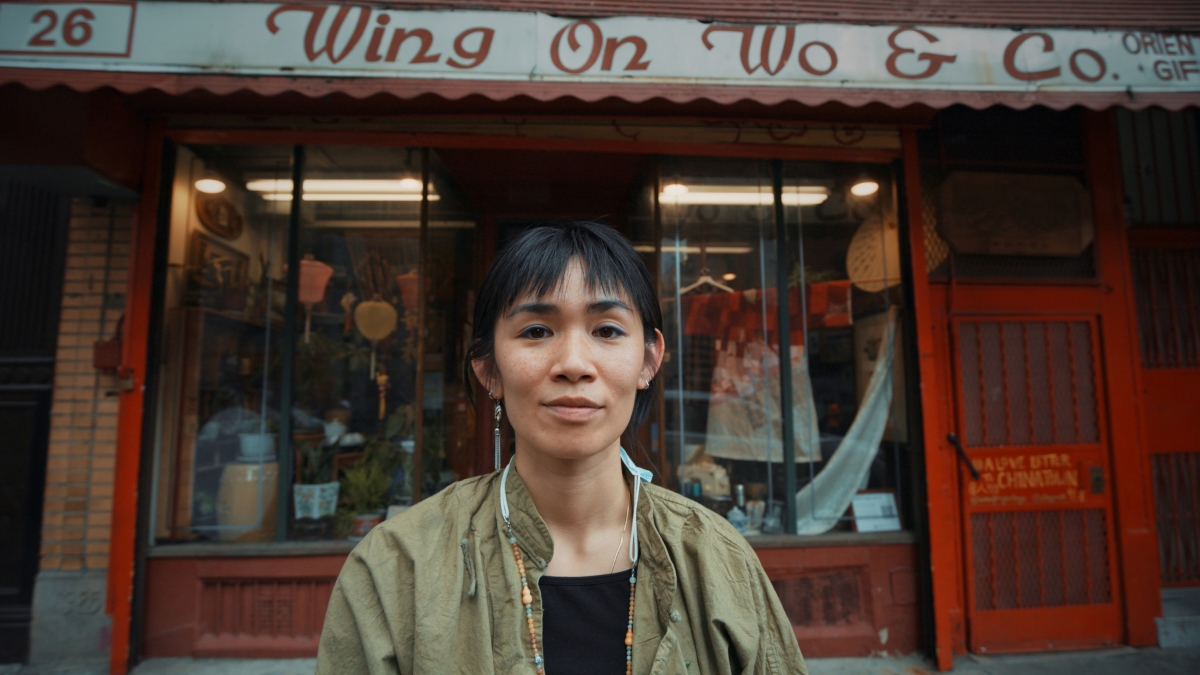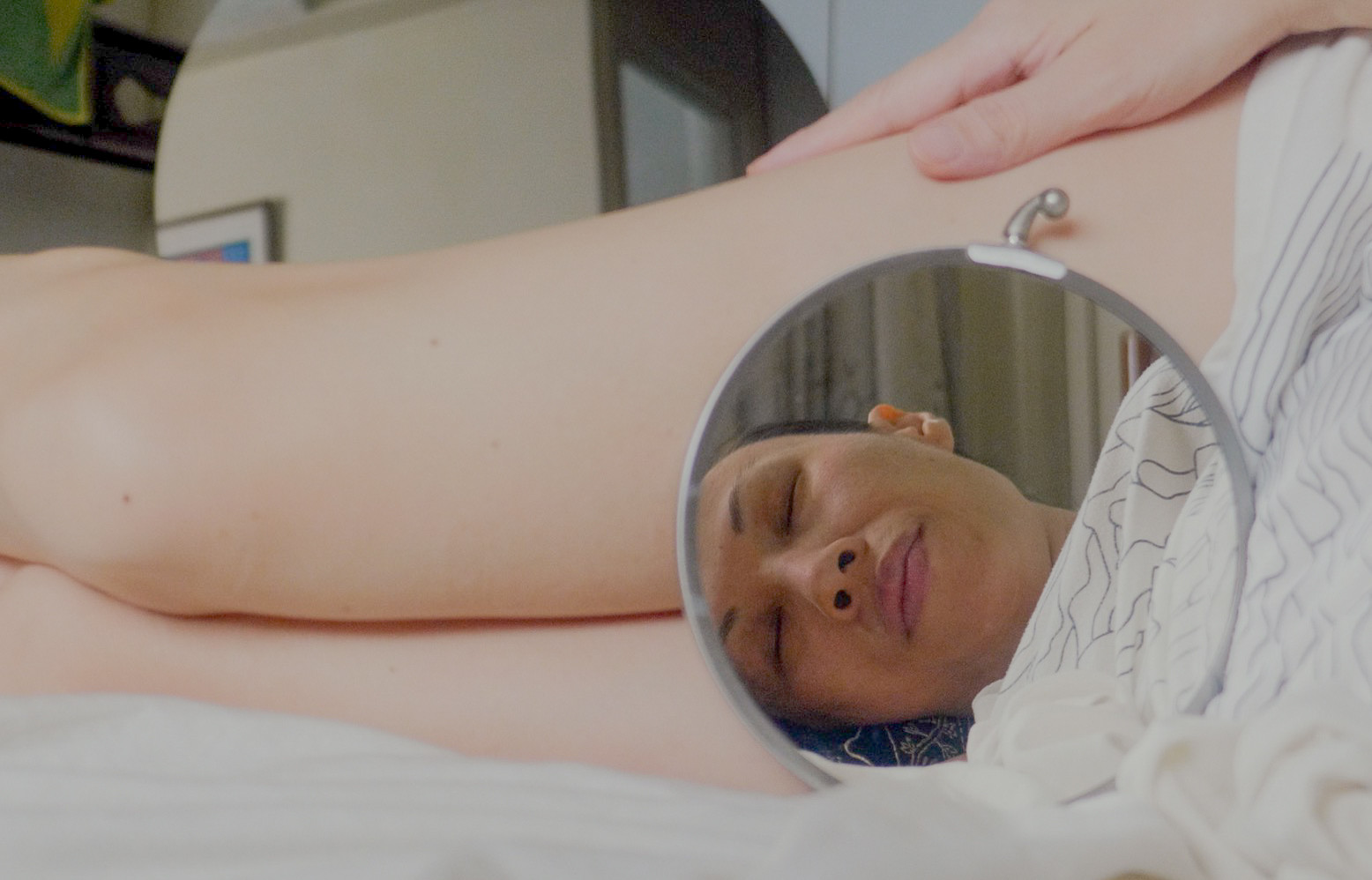“We tried to learn, and unlearn, so many things during this journey,” says In Her Hands director Tamana Ayazi. The filmmaker and her fellow director Marcel Mettelsiefen, speaking with POV at the Toronto International Film Festival shortly after the world premiere of In Her Hands, bring the story of Zarifa Ghafari to the screen in this powerful film that chronicles the changing political winds in Afghanistan leading up to the withdrawal of American troops in August, 2021. In Her Hands offers an immediate, on-the-ground portrait of Ghafari, who, as the 26-year-old mayor of Maidan Shahr, was Afghanistan’s youngest woman elected to public office at the time. The film looks at both sides of a nation in a war between the old and the new during a moment of change.
In Her Hands observes how Ghafari uses her position to fight for the rights of Afghan women, particularly the right to education. At the same time, the film cuts to images of madrasas where the Taliban grooms its next generation of fighters, including someone close to Ghafari who joins when he feels all is lost. Contrasting between one character trying to move the nation forward and another fighting to set it back, the film offers no easy answers for a complicated political and human rights battle. “When we went to the villages with the Taliban, and then with Zarifa in the car, we had conversations about these differences whenever we were done filming,” adds Ayazi. “We had a lot of agreements and disagreements, but we took time to process them.”
Ayazi and Mettelsiefen find in these stories echoes of the 2019 documentary they produced, Where the Light Shines, which observed Afghanistan in transition as two men trained for the Olympics to represent their country. Both films capture Afghans fighting for their nation’s future, but the endgame in the dueling narratives of In Her Hands are markedly different. The film, which is executive produced by Hillary Clinton and Chelsea Clinton, considers the future for all women in Afghanistan as it follows the courageous Ghafari through rallies, speeches, and eventually, her flight from her homeland. So too did Ayazi, who left soon after with nothing other than her computer and files containing the footage for the film.
“This is a film about a strong woman, but she is, by coincidence, a politician,” observes Mettelsiefen. “There are many strong women in Afghanistan, but Zarifa was in a place where we could explain the division of the country through the trust we gained with her.”
POV spoke with In Her Hands directors Tamana Ayazi and Marcel Mettelsiefen following the film’s premiere in September.
POV: Pat Mullen
TA:Tamana Ayazi
MM:Marcel Mettelsiefen
This interview has been edited for brevity and clarity.
POV: How do you choose one woman to represent the plight of all women in Afghanistan? Why Zarifa?
TA: Zarifa was the perfect person because of the access we were able to get. She was in a province divided by the Taliban. It was one of the unsafe provinces, but it was not far from Kabul. Zarifa was also like me. She was born there, raised there, worked there, and whatever came, it was from within. We wanted the change. It was not imposed by any other country or power. She was strong, she had the courage to do all these things herself, and she used the power of technology and media to fight for what she deserved.
MM: Tamana and I partnered up because we have worked together before. I’m a man in a world where I’m sometimes not even able to see a woman. The access is so limited. It’s so complicated. But we also had very intimate access to a world that is unbelievably difficult to access: her private life.
POV: I was surprised to see the scenes with the Taliban, but I think the contrast is strong. What motivated you to include both sides of the story?
TA: I’m a woman. I’m an Afghan, I’m a filmmaker—so many things. But I also knew the complexity and I knew why it was complicated and how complicated it was. It was easier to show it through different perspectives because we cannot hide it. If you ignore the fact, it’s not that it doesn’t exist. I saw on TV and [heard] on radios that the Taliban were having conversations with the US government. It was frustrating for me as an Afghan to see that. But there was no connection between Afghans and the Taliban, no talks between them.
It’s important for the audience outside of Afghanistan, as well as inside Afghanistan, to understand and see why they are saying things, and doing whatever they were doing. Like everyone in the film, they say, “This is my country. I want to build it.” We see that everyone is going in a different direction.
MM: On one hand, it was obviously the timing. The Taliban felt very comfortable. They had 75% of the country already in their hands. They started to open up again. 10 years ago, it would have been impossible to do what we did. They gave some journalists access to go in before and, normally, they would come out with 15-minute news pieces. We said, “No, we want to do a film.” It was a very thin line to build this puzzle. It was a challenge to ask how to show the other part of the story, what Zarifa and all Afghan women of this young generation are struggling with, but we’re also trying to understand why so many people are drawn into the hands of the Taliban. People have been disenfranchised. This divides the country on a social level as well. I think that’s where we realize this is a universal problem. People feel neglected and are angry, and they start to get extreme. That’s what happened there, obviously with a religious context, but they’re not so far away from any other extreme movement around the world.
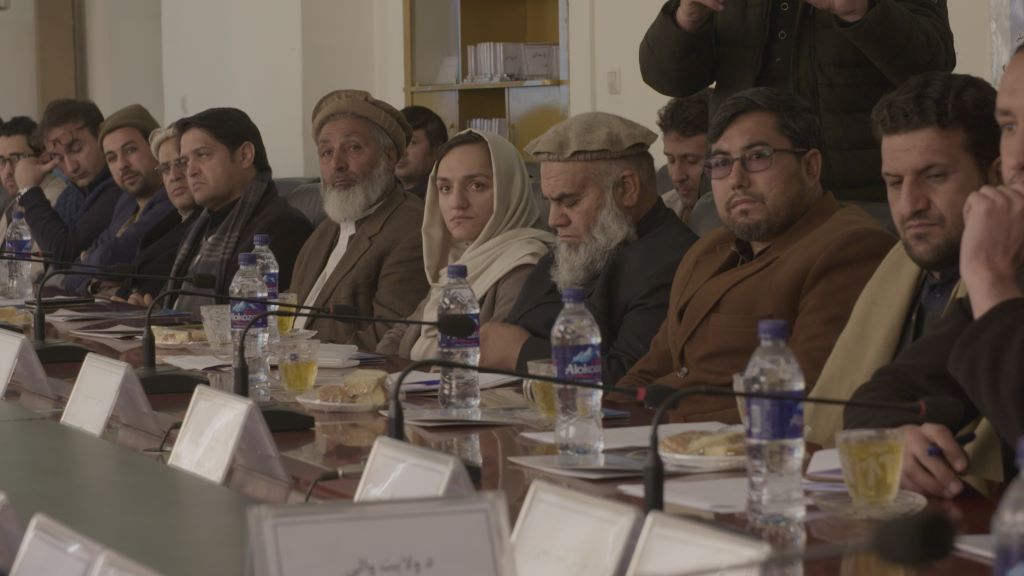
POV: When you’re following a character like Zarifa and the situation is developing, and the US announces its withdrawal, how do you decide when the story ends?
TA: We never knew how we wanted to end the film. We had a few options if it went this way or that way. We followed her and we kept it real. And we knew that it needed to end in Afghanistan. The ending shouldn’t be outside Afghanistan because it’s a story about Afghanistan. We belong there no matter what.
MM: This was the most challenging part of filming. To have, suddenly, the exodus, the collapse of the country, and not only have the main character living alongside so many other people who tried to get to safety, but Tamana also had to flee. We had to focus on the most important part: to get them out safe. We realized quickly, as Tamana said, that we couldn’t finish this film outside [Afghanistan]. The situation on the ground deteriorated so quickly.
Privileged as a foreigner, I was able to go back in a couple of weeks after the fall. It was then when Massoum [Ghafari’s bodyguard] became an important character. We go through his eyes to understand the new Taliban universe, but as well to understand through his journey how everything worked. We see how he was feeling betrayed and how he had to adapt to a completely new reality, observing the poverty, observing the injustice. And that’s when Zarifa then managed to go back. We realized we had a strong ending.
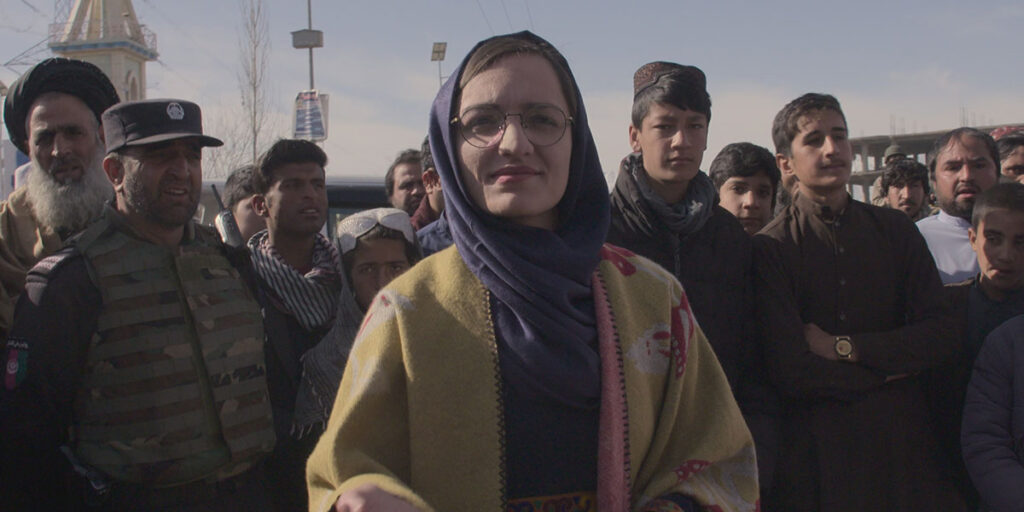
POV: How do you work to protect the security of one subject while also gaining access to another who has posed credible threats of violence and acts of violence to your key subject?
TA: It was tricky because we had to take permission from that side. We had to take permission from the government. We had to follow Zarifa. She was under threat. The Taliban were fighting the government, they were fighting them, and crossing the territory. It was very complicated.
We had to be careful, even if the two of us shared information. We knew what was happening: What was the plan? When are we leaving? When we are going to this province, that province and filming? We also had a responsibility to protect all the characters. We didn’t want anything to happen to them. For example, if they say, “We are not sure that we should go to Maidan Wardak,” we didn’t go. When the Taliban let us know, “You shouldn’t come today and film,” we didn’t do it. We did not share the information with the other characters because it’s important to protect each one, no matter their background.
MM: The closer we got to August 2021, the trickier the situation for the Afghan government was, and the more difficult it became to film Zarifa. Strangely, it was much safer to be within the Taliban territories because, once you’re inside, they protect you. We did not go to the front lines, so we were more or less safe knowing that there wouldn’t be any air attacks. But Zarifa, she was a target, not only from the Taliban, but there have been movements. It was a dirty game when the system was about to collapse. There’ve been inside jobs; there’ve been sticky bombs every day.
I’m a foreigner, but Tamana is Afghan. Tamana had to adapt and deal with danger her entire life. Danger becomes part of a daily routine. I covered war and I know how to behave in it, but it’s not my reality. I’m able to adapt to reality. We worked together to adjust to danger. Tamana decided, “Does it make sense or is it too crazy? We have responsibilities.” The dynamic between us worked very well.
POV: How did the partnership with the Clintons come about?
MM: Early 2020 was our first trip to Afghanistan and then our second trip was in March [2020]. Then the pandemic hit. We had 60 hours of material. We knew it was strong, and then we started to ask, “How do we do this?” Everybody was in lockdown and nobody cared about anything else besides COVID, so we partnered with Propagate. They had done a series about the Clintons [Hillary] for Hulu. They brought them onboard. We thought that women’s empowerment and education are strong subjects of the film. This matched and we were happy and grateful that they helped us to make this journey possible.
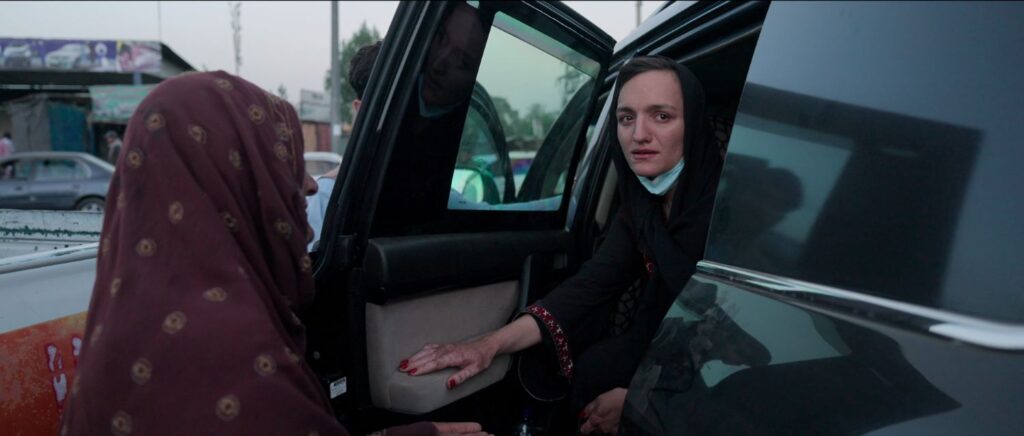
POV: Does that it effect how you depict the situation in Afghanistan when your executive producer was the Secretary of State? Was there a consultation on the topic?
MM: Not at all. They watched the film, I think, two weeks ago. [August 2022.]
POV: Oh! So it was pretty much done, then? [Laughs]
MM: Exactly. They are part of a production company, but creatively they have not been involved. They do have Siobhan Sinnerton, who I know from my film Watani, who was back at Channel 4 then. She was with us working all the way alongside Jonathan [Schaerf] from Propagate and with the Netflix team throughout the creative decision the process.
POV: For a film like this that has a global reach through Netflix, how do you decide to whom the film speaks? Will it play differently here than in Afghanistan?
TA: I was asked this question. Siobhan asked me if I want people in Afghanistan to watch the film, but I feel like this film is really balanced. I want my people to watch the film and understand, because I went and visited Taliban territory that time in 2020 and 2019, but they didn’t. Everybody needs to watch it. It’s a political film, but it’s not about politics, which is good.
POV: What was going through your head the day you had to flee? When we see Zarifa going to the plane, security guards are saying, “Don’t film,” but you keep rolling.
TA: We filmed outside the airport, but as soon as they went inside the airport, they filmed on their phone. Bashir, her fiancé, filmed her on the plane. We were not there, and I did not leave then. They left Afghanistan on the 19th or 20th and I left two weeks after the takeover of the Taliban. I made excuses. I didn’t want to leave. But, you know, it was a tough decision. I didn’t say goodbye to my family, to my loved ones. I didn’t see anyone. I left with only a laptop and hard drives.
POV: That must have been so difficult. How do you feel now? Does this film have a happy ending for you?
TA: I’m still hopeful. I was hopeless in the beginning—I didn’t know what was happening when I left. I thought it would be for a few days, few weeks, or few months, and then I will be able to go back. Now, as I see the situation, I don’t think it’s realistic to go back because of the work I’m doing. I do have access to work from outside, but it’s my country. My loved ones are still there, and I do want to go back.




